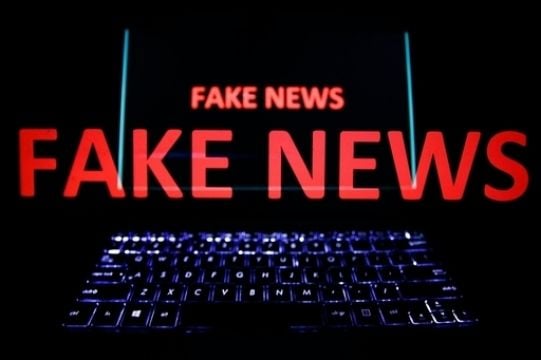A new study has found that 'fake news' can result in false memories, with possible consequences for downstream behaviour.
The study was presented today at a Health Research Board online conference on 'Truth and Trust in Health Research'.
Dr Gillian Murphy of the School of Applied Psychology at University College Cork presented findings on the rise in online misinformation during the coronavirus pandemic.
The study measured susceptibility to false memories following exposure to fabricated news stories about the pandemic in a sample of 3,746 participants. Dr Murphy and Dr Ciara M. Greene of the School of Psychology at University College Dublin, investigated the effect of individual differences in:
- Knowledge about Covid-19.
- Engagement with media or discussion about the coronavirus.
- Anxiety about Covid-19.
- Analytical reasoning
The research found that people who are more knowledgeable about Covid-19 or who score better on a test of analytical reasoning are less prone to reporting false memories following exposure to fabricated stories.
False memories
In contrast, people who simply believe themselves to be knowledgeable are more likely to report memories for true stories, but are not protected against false memories.
Results also showed that people who are very anxious about Covid-19, or who engage with a lot of related content are also more likely to report a memory for true (but not false) stories.
Dr Gillian Murphy said: “The coronavirus pandemic has been associated with a surge in online misinformation, to the extent that the World Health Organisation has warned of an ‘infodemic’. It is possible that belief in misinformation might have behavioural consequences, or undermine public health messaging.
“These findings may help in the development of fake news interventions, and suggest that a combination of interventions aimed at increasing public knowledge and encouraging critical evaluation of news stories may be most effective.
“If online health misinformation is to be effectively countered, it is critical that we understand which factors will lead individuals to believe, remember or act on fake news.”
Dr Mairéad O Driscoll, chief executive at the Health Research Board said: “When it comes to health, it is essential that people can discern fact from fake. This research shows that understanding the factors that influence people’s decisions is key.
"We must use this understanding to challenge misinformation and support people to make informed decisions about health and this HRB conference is a key step to help achieve this”







